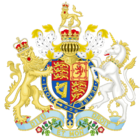Trade Union Act 1871 facts for kids
| Act of Parliament | |

|
|
| Long title | An Act to amend the Law relating to Trades Unions. |
|---|---|
| Citation | 34 & 35 Vict. c. 31 |
| Dates | |
| Royal assent | 29 June 1871 |
| Repealed | 1974 |
| Other legislation | |
| Repealed by | Trade Union and Labour Relations Act 1974 |
|
Status: Repealed
|
|
The Trade Union Act 1871 was a very important law passed in the United Kingdom. It was the first time that trade unions were officially made legal. Trade unions are groups of workers who join together to protect their rights and improve their working conditions.
Before this Act, trade unions were often seen as illegal or against the law. This new law was a big step forward for workers' rights in the UK. Even though this specific Act is no longer in use, it laid the groundwork for many of the worker protection laws we have today.
Contents
Why the Act Was Needed
In 1867, the Prime Minister, the Earl of Derby, set up a special group called a Royal Commission on Trade Unions. This group was created to study trade unions and their activities.
- Looking into Unions: The Commission wanted to understand how unions worked.
- Worker Voices: A worker representative named Frederic Harrison was part of the group. He helped union members share their experiences.
- Union Observer: Another important person, Robert Applegarth, from a carpenters' union, watched the meetings.
Different Ideas for Change
Most of the Commission members did not want to make trade unions fully legal. However, a smaller group, including Frederic Harrison, wrote their own report. This "minority report" suggested some big changes:
- Fairness for Workers: They believed that workers' groups should not be treated as criminals for working together.
- Ending Old Rules: They wanted to stop old laws that made it hard for trade unions to exist.
- Protecting Union Money: They also wanted to make sure that unions could legally protect their money.
When a new government led by William Ewart Gladstone came to power, the Trade Union Congress (a big union group) pushed for the ideas in the minority report to become law. They were successful!
What the Act Did
The Trade Union Act 1871 made several key changes to the law:
- Unions Are Legal: It said that trade unions were not illegal, even if their actions might have seemed to limit trade in the past. This meant union members could not be arrested just for being in a union.
- Agreements Are Valid: It made sure that agreements made by trade unions were not automatically considered void or invalid.
- Courts Stay Out: The Act also said that courts should not get too involved in the everyday agreements of trade unions. This helped unions manage their own affairs.
- Voluntary Registration: Unions could choose to register with the government. This gave them some small benefits.
- Financial Records: It allowed union members to look at their union's financial records. This helped ensure transparency.
Later Changes and the End of the Act
Right after the Trade Union Act 1871 was passed, another law, the Criminal Law Amendment Act 1871, was also created. This second law made picketing illegal. Picketing is when workers stand outside a workplace to protest. This made it harder for unions to protest effectively.
However, the ban on picketing was later removed by the Conspiracy and Protection of Property Act 1875.
The Trade Union Act 1871 itself was eventually replaced. It was fully repealed (meaning it was taken out of law) by the Trade Union and Labour Relations Act 1974. This newer law continued to build on the rights of trade unions and workers in the UK.
 | Frances Mary Albrier |
 | Whitney Young |
 | Muhammad Ali |

